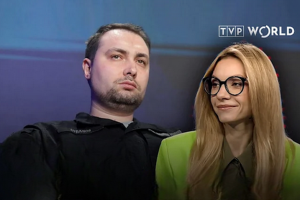Unrealized potential of the visa-free regime between Ukraine and the EU
Starting from June 11 of this year Ukrainian citizens that have in hand a biometric foreign passport will finally be able to freely travel within the framework of short-term trips (up to 90 days every 180 days) without the need to obtain a visa to enter countries of the European Union and four other European countries, which are not EU member-states (Iceland, Lichtenstein, Norway and Switzerland). Therefore, the near 10-year saga of complicated and contradictory talks between Ukraine and the European Union regarding the simplification of the visa regime has come to an end.
According to the information of the State Border Guard Service of Ukraine, over the first week 18,000 Ukrainian citizens managed to take advantage of the functioning of the visa-free regime.
It is quite clear that in the foreseeable future many more thousands of Ukrainians will take advantage of the possibility to travel to countries of Europe without a visa, though at the same time the unrealized potential of the new visa-free regime could turn out to be much more significant.
According to the results of the nationwide polling recently conducted by the Ilko Kucheriv Democratic Initiatives Foundation (DIF) jointly with the Razumkov Center, only 7% of citizens of Ukraine managed to obtain new biometric passports, which give them the right of visa-free travel to countries of the Schengen Area. Approximately the same number – 7.4% of Ukrainians – is only planning to apply for a biometric passport over the course of this year. Given this, approximately every seventh Ukrainian citizen will be able to take advantage of the “visa-free” advantages in the nearest future, which however is not a sufficiently convincing indicator.
Particularly notable is the contrast on the backdrop of approximately 45% of Ukrainians, who according to data of the aforementioned polling are totally not planning to apply for a biometric foreign passport, while the absolute majority of citizens (66%) admitted that they do not have a foreign passport of any kind whatsoever. At that, in the context of the latter the situation looks fairly similar in different regions of the country: in each of the macro-regions of Ukraine (West, Center, East, South) the overwhelming majority of citizens do not have a foreign passport at all.
Such a grim picture being formed through the prism of public opinion in Ukraine could testify first and foremost to the fairly low level of the cross-border mobility of Ukrainian citizens in the context of their going on short-term trips abroad to European countries. In truth, this situation is not surprising if to take into account that Ukrainians did not travel that actively in their own country. For instance, the results of public opinion poll of the Kyiv International Institute of Sociology (KIIS) conducted some years before showed that 36% of Ukrainians did not even travel beyond their region of residence.
It practically does not incite any doubts that today the decisive factor inhibiting the mobility of Ukrainian citizens from traveling abroad is their financial wherewithal and their general level of income. The sharp decline in the economy of Ukraine, an almost threefold devaluation of the national currency (hryvnia) and multiple hikes in municipal residential utilities services over the past several years had a negative impact on real incomes of the majority of citizens and accordingly on their financial ability to take short trips to countries of the European Union.
For example, more than 60% of citizens noted a worsening of their material situation over the past year according to the results of polling conducted in May of this year by the sociological group “Rating”.
The economic factor finds its logical reflection in the plane of the self-esteem of Ukrainian citizens, the absolute majority of which (59%) expressed in the public opinion poll their conviction that can feel themselves as genuine Europeans mainly upon reaching a certain level of well-being. Herewith, such an approach in general is shared by citizens of all regions and age groups.
At the same time, it would be wrong to presume that material considerations are the only factor that constrains the cross-border mobility of Ukrainian citizens. The other side of the coin of “visa-free obstacles” is the real awareness of citizens regarding the new rules and possibilities that the new regime of crossing the borders with European countries affords them.
Given this, according to the already mentioned results of polling of the Democratic Initiatives Foundation (DIF) more than a third (35%) of citizens generally know nothing about the rules of entry and stay in countries of the Schengen Area, while even more Ukrainians (nearly 38%) are either unsure or have an absolutely erroneous perception of the fact that a visa-free regime with Schengen countries ostensibly grants them the right to work in the respective countries.
Another similar sociological study of the Kyiv International Institute of Sociology (KIIS) showed that only every fourth citizen of Ukraine knows over which term he/she is allowed to stay on the territory of the EU according to the terms of visa-free regime, while at the same time only every third polled in Ukraine knows about the need to have a biometric passport for visa-free travel to the EU.
Thus, besides focusing on the tangible improvement in the material standing of citizens, the governmental bodies, representatives of civil society in Ukraine and all other interested players must in the foreseeable future make systemic efforts to enlighten and duly inform different segments and age groups of Ukrainian citizens about the basic principles of the functioning of the visa-free regime, the main rules of entry and stay in the Schengen Area countries and other tangential aspects in order for the visa-free regime with the EU to be perceived as truly “victorious” achievement in Ukraine.
Particular attention in the context of a nationwide information awareness campaign in Ukraine regarding the “visa-free regime” must be paid to youth and students as the most dynamic and mobile segment of Ukrainian society. The support of short-term (up to 90 days) educational programs and the organization of trips to EU countries with the aim of cultural enlightenment by the state and foreign donors for this segment of the population would also be totally expedient. Together with this it would be worthwhile orienting separate efforts towards the improvement of conditions for Ukrainians of different age groups to learn foreign languages, in particular English, in Ukraine. Such a policy could in the future foster the improvement of the situation with the cross-border mobility of Ukrainian citizens.
Introduction of the visa-free regime is only the first extremely important step towards rapprochement of Ukraine with countries of the European Union. However, no less important work lies ahead. Specifically, it should be aimed at giving the greater part of Ukrainian citizens not only the rights, but also the possibilities and the necessary knowledge (awareness) that will allow them to freely and regularly travel to countries of a united Europe.
Оriginal: Ukrainian Interest








